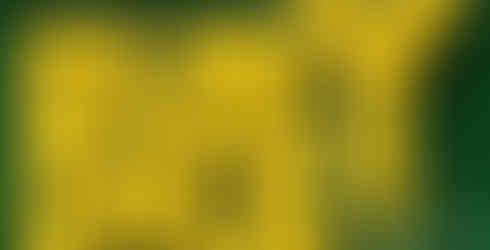Review: Orpheus and Eurydice at the Old 505
- Sep 5, 2019
- 4 min read
By James Ong
Located in the Old 505 Gallery room, just off the rumbling streets of Newtown, twin shows Orpheus and Eurydice enticed, enlightened and engaged me for their combined 2 hour run time. Though distinctly two separate shows, the combination of the two (much like the characters they follow) delivers the heavier punch with beauty, tragedy and melancholy. A max capacity of 15 promises that each night is an intimate performance; fewer bodies to absorb the sound heightens the impact from heart-aching cries and waves of nectarous music. Rapturous echoes linger in the air as each show recounts the classic Grecian tale of Orpheus and Eurydice (one from his perspective and one from hers), all in the setting of modern day UK. Penned (and originally performed) by York based artist Alexander Wright, the two pieces are delicately assembled works of art, using tasteful nostalgia, relatable language and bohemian sensibilities to translate the classic work for the Sydney Fringe audience. Both shows are brought to vivid life by their commanding performers, who blend moving poetry and pulsing music to create a truly remarkable aural experience.
The male perspective is performed by the two-hander of Phil Grainger (composer and guitarist) and Tom Figgins (spoken word), whose brilliant chemistry anchor the experience and tugs on heart strings. Figgins captivates as our main orator, channeling a steady charisma to guide us through the story, all while bouncing off a slick and folksy Grainger. In following Orpheus’ story, we are presented with a kindly young man that does not belong to the world he was born in to. After encountering an almost ethereal Eurydice in a karaoke bar, their romance blossoms in full. The converse female tandem of Louise Williams (spoken word) and Yoshika Colwell (guitar and electronic soundboard) approach Eurydice with a more current tone. Self-assured and rebellious, the Eurydice we see here is proud of her non-conformity. Williams’ grounded performance emanates intelligence and a modern sense of progressivism, while Colwell uses to well up some sneakily impactful emotion in the audience.
While both are complete, self-contained and unique pieces, the contrasting of the two allows for another perspective. The male vs female lens highlights one key factor: Eurydice’s agency. The male representation see her as a force of nature; manifestation of beauty itself, but not exactly a fully-fledged character. As such, she has no real function in the plot outside of being a target of romantic affection - pretty much in line with the archaic romance of the original myth. Conversely, Eurydice is much more fully formed in the female lens, with the piece expressing her dreams, goals and insecurities, giving us someone to actually fall in love with.
This comes to a head in the climax of the narrative. Eurydice’s untimely death sees her banished to the Underworld (Hades) and in a daring affirmation of his love, Orpheus ventures to this forbidden place to rescue his love and lead her home. The rules are set: he shall lead the way back to the overworld and Eurydice will follow. However, if he looks back to gaze upon her, she will be thrown back into the hellscape to remain evermore. The male interpretation continues to follow the source material, with Orpheus’ temptation proving too strong, dooming Eurydice. The female piece shifts this slightly, with Eurydice making the decision to stay. While the original Grecian tragedy of a love too strong is moving, when translated to modern times it takes on an almost sinister tones as we compare it to today's climate. A man overwhelmed with love and temptation is denied, leading to a violent/deadly punishment for the woman. Eurydice’s pseudo-empowerment at least places the decision in her hands here to balance out this new dynamic.
One unique aspect of these two shows touring throughout the Australian Fringe Festival circuit is the unique position the name Eurydice holds in this country. For most artistic folk in metro Australia, it’s a hard tie to ignore. The events of June 2018 thrust forward an unfortunate, yet fascinating layer over these two shows that makes the inevitable death of our eponymous female much more potently poignant. Considering this rendition of Orpheus and Eurydice was written in 2016 and began touring the UK scene before expanding globally, I can’t imagine there is much of an intentional connection, but it remains an interesting thought.
The two sepia-soaked, mumblecore dreams I experienced in the Old 505 Gallery took me by surprise on a cold Tuesday night. Both shows are playing until 14th September and are truly a spectacle of sound and emotion. We are asked to see our own lives in the context of Grecian gods. Do we identify more Orpheus the musician? Or the nymph daughter of light and earth, Eurydice? What traits of nature do we embody? In a tender moment of connection, one of our romantic muses gently hums and asks us to join in: “Let’s be gods”.
Images Supplied
All opinions and thoughts expressed within reviews on Theatre Travels are those of the writer and not of the company at large.








